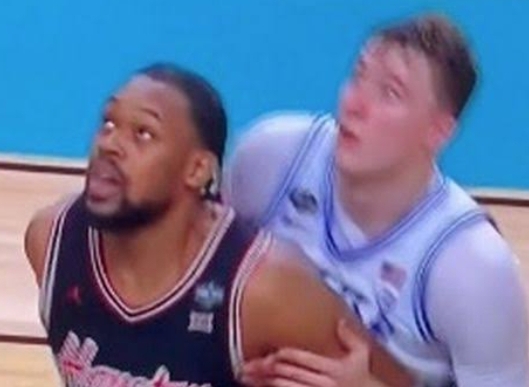NCAA Delivers Final Ruling on Officiating in Controversial Duke vs. Houston Matchup
The NCAA has issued its final ruling following a thorough investigation into the controversial Sweet 16 game between Duke and Houston, which ended in a 70-67 victory for the Cougars.
The matchup drew immediate backlash due to several questionable officiating decisions, prompting an internal review.
Duke head coach Jon Scheyer was among the most outspoken critics, voicing concerns about the integrity of the game’s officiating.
The NCAA’s investigation confirmed multiple officiating errors in the second half that directly impacted the game’s outcome. Among the most glaring mistakes were two incorrect offensive fouls called against Duke, a missed goaltending violation by Houston, and an uncalled offensive push-off late in the game.
One of the most debated moments came with just 34 seconds remaining, when Duke guard Tyrese Proctor appeared to take heavy contact on a drive to the basket from Houston’s Jamal Shead. Officials made no call on the play, which immediately led to a fast break and layup by Houston to extend their lead. The NCAA has now confirmed that a foul should have been called, which would have sent Proctor to the free-throw line with a chance to tie or take the lead.
Another major officiating lapse came when a clear shot-clock violation by Houston was missed in the final two minutes, resulting in an extended possession and a critical three-point basket. The review stated that this oversight was a “significant failure in game administration.”
In its official statement, the NCAA admitted the officiating crew did not meet tournament standards and acknowledged that the mistakes altered key moments of the game. However, the result of the game will stand, in accordance with NCAA policy which prohibits overturning final scores based on officiating errors.
Coach Jon Scheyer responded to the ruling by saying, “We respect the NCAA’s transparency, but it’s frustrating knowing our players gave everything and had the game influenced by missed calls. There has to be accountability.”
The NCAA confirmed that the referees involved will not officiate in any remaining tournament games and emphasized its commitment to improving training and oversight. Going forward, the organization plans to tighten review protocols to avoid similar controversies in future tournaments.

